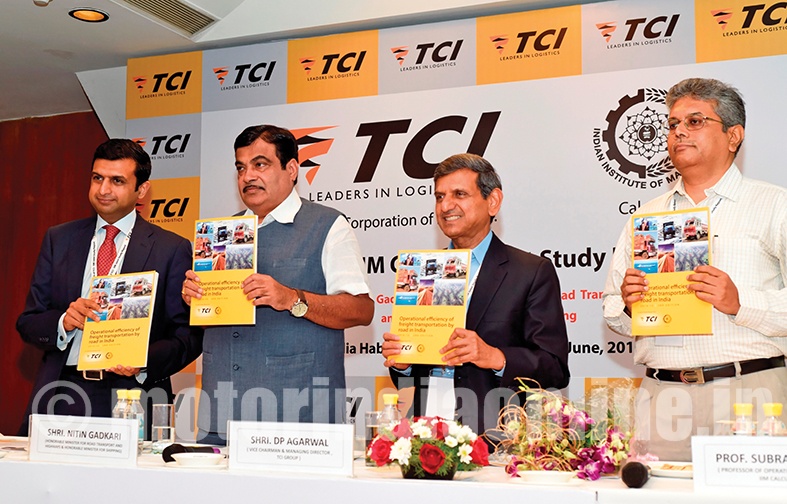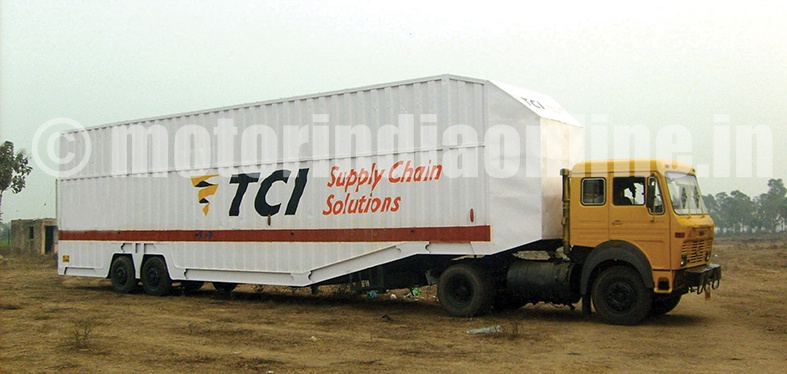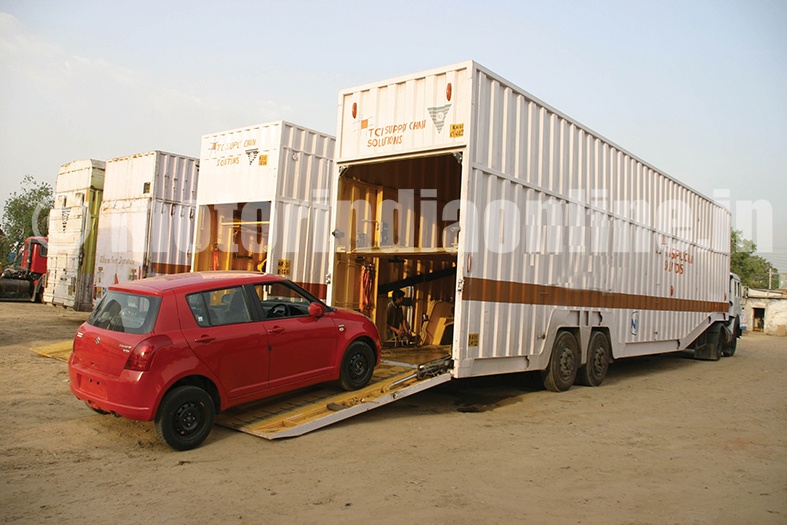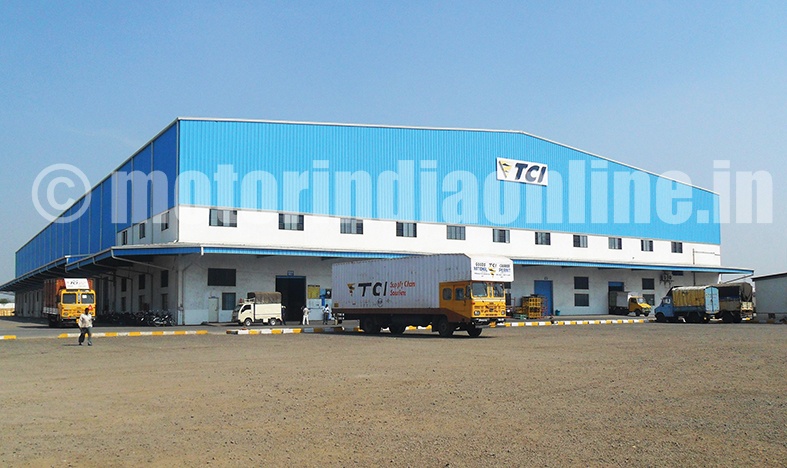Joint study report with IIM-C unveiled
The Transport Corporation of India (TCI), in collaboration with IIM Calcutta, launched the third edition of the joint study report titled “Operational Efficiency of Freight Transportation by Road in India”.

The report, unveiled by Mr. Nitin Gadkari, Minister for Road Transport and Highways and Shipping, at an event held at the India Habitat Centre, New Delhi, is based on the joint survey of road freight transportation along 28 key routes in India. The aim of the study is to explore new ways to increase the operational efficiency of freight transport by road.
The study is a follow-up of earlier reports, also commissioned by TCI in 2008-09 and 2011-12, referred to as the 2008-09 survey and 2011-12 survey respectively. The primary objective of the third edition of the study was to compare route statistics with those from 2008-09 and 2011-12 and identify major changes in the road freight transportation sector over the years.
Road transport plays a significant role in the economy and the sector’s contribution to India’s GDP was 6.5 per cent in 2011-12, out of which roads contributed to 4.8 per cent as compared to one per cent of the Railways. The key finding of the report is that there is a pressing demand for faster expansion of the road network, to widen and improve the conditions of the existing roads through periodic maintenance.
Mr. Vineet Agarwal, Managing Director, TCI, said: “Freight transportation by road is a very vital component of India’s economy. Understanding the best ways to enhance its operational efficiency is therefore very important for the growth of the country and for bolstering internal commerce. The report seeks to understand how road infrastructure needs to keep pace with the increasing traffic and suggests key areas that need to be looked at to ensure that freight transport by road becomes more cost-effective and speedy for all stakeholders involved.”
India incurs $14.7 billion and $6.6 billion annually due to additional fuel consumption costs and transportation delays respectively. The report seeks to shed light on all the areas that need to be worked upon to plug these gaps and reduce the cost burden.
The report has made the following recommendations:
- The Government should resolve issues regarding GST with various stakeholders to reduce the stoppage delays that take place for documentation check and tax collections.
- Fuel efficiency in terms of mileage has to be increased. This is currently suffering from slow vehicular speeds due to poor road conditions, traffic jams, multiple on-road stops, long queues, idling at check-posts and old vehicles.
- Issues in relation to rail freight transportation faced by shippers need to be addressed and resolved. This is related to the problems of loading delays, unavailability of rakes when required, poor service and lack of multimodal coordination.
- The Government should broaden the scope of multi-modal transportation under the Multi-Modal Transportation of Goods Act, 1993 in India as it is more economic, efficient and eco-friendly.
- The Government should encourage private participation and assume active roles in multi-modal logistics parks by providing incentives on investments for such projects.
- As shipping in summer and monsoon months proved less lucrative for truckers due to the poor road conditions, the Government should ensure road building and maintenance around these months for smoother vehicular movement.
‘GST will bring positive benefit for entire ecosystem’
Exclusive interview with Mr. Vineet Agarwal, MD, TCI Group
This is the third edition of the report prepared by TCI on the road sector. What are the key learnings this time?
This time the report covers more sectors than we had done previously. So we have covered 28 routes and are assessing the operational efficiencies of highways. We have found that the average speed of the trucks has actually gone up in the last five years from 23 km/hr to about 35/36 km per hour. We attribute this improvement to better condition of roads and better linkages, etc. However, there are a number of stoppages in certain areas that have increased also.
Apart from the improvement in the road infrastructure, what are the other upsides that have been witnessed by the transport sector?
A lot of this is related to the better understanding of the market as people are able to track the movement of vehicles through GPS, etc. In some places, electronic tolling has been introduced. Some companies have started using double drivers to improve the speed. So these are some base level changes that have started to happen.
Being a prominent player in the road freight sector, how big are you betting on this?
For us, we are into multiple modes of transport such as road, rail, sea and air and all of them are equally important for us. This is because we believe we can provide a better solution to our clients based on all the modes. So I think the Govt. will start looking at them very effectively as our minister (during the conference) spoke about the linkages between various sectors. I think those are real positive steps.
Is TCI also eagerly awaiting the GST implementation as it will streamline the whole process?
Yes, GST is something that will bring a positive benefit for the entire ecosystem. But the impact of it will take a few years. It will not be that instantaneous that will see results in the near term. The necessary changes that have to be done at the legislation level as well at the infrastructure level to have the GST network ready and the companies need to start adopting that changes at their own distribution network like warehouses. These will all take its own time.
Can you please tell us some of the key peculiarities of the road transport sector in India?
The peculiarities of the road transport sector in India are very similar to other countries. For example, a lot of truck owners in the US are fragmented. It is not that many large companies are there. There are a lot of small truckers there but only a few of them dominate the entire sector. In India, one of the key peculiarities is that free trade is governed by demand and supply. Agricultural produce has a huge impact on the market forces. For example, when Nagpur oranges come up freight trade go up by 50%. Likewise, during the summer season mango rates will go up and determine freight rates.



